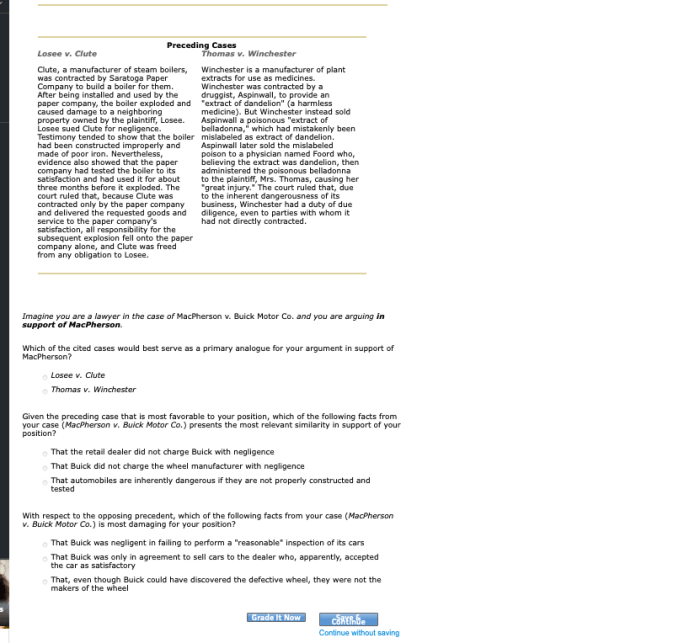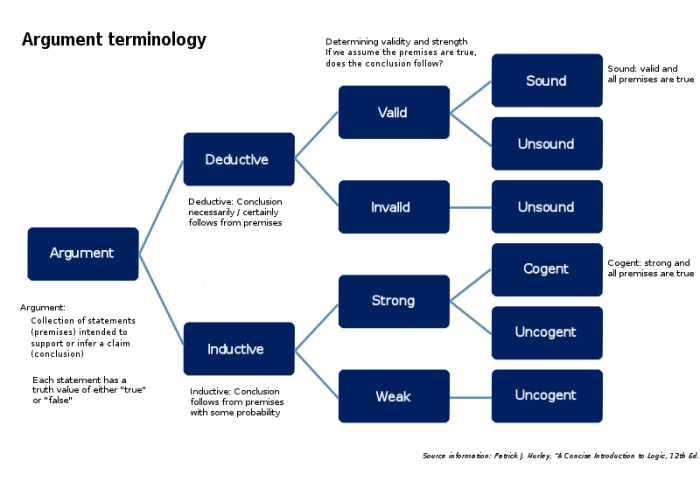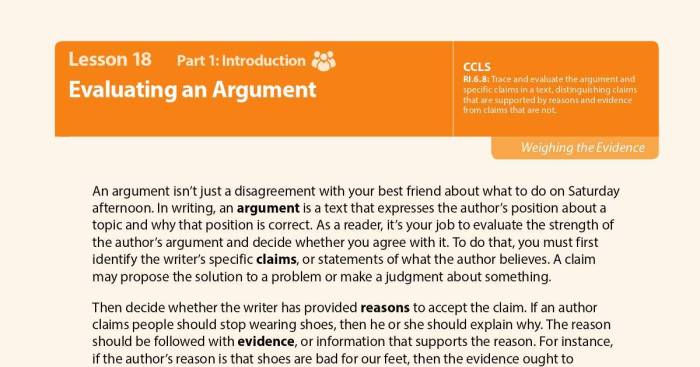Lesson 19 evaluating an argument answer key – Lesson 19: Evaluating Arguments Answer Key provides a comprehensive guide to the critical analysis of arguments, empowering readers to discern the validity and strength of reasoning. This lesson delves into the essential components of argumentation, equipping learners with the tools to navigate complex debates and form well-informed judgments.
The lesson commences by emphasizing the significance of evaluating arguments, highlighting its role in critical thinking and decision-making. It then proceeds to categorize arguments based on their structure and purpose, providing a framework for understanding the nuances of argumentation. Furthermore, the lesson explores the concept of logical fallacies, identifying common pitfalls in reasoning and offering strategies to avoid them.
Evaluating Arguments

Evaluating arguments is a critical skill in academic and professional settings. It allows individuals to assess the strength and validity of arguments, identify logical fallacies, and draw sound conclusions. This guide provides an overview of the process of evaluating arguments, including identifying different types of arguments, assessing evidence, and considering context.
Types of Arguments
- Deductive: Arguments where the conclusion is logically guaranteed by the premises.
- Inductive: Arguments where the conclusion is supported by evidence, but not guaranteed.
- Abductive: Arguments that propose an explanation for a given set of observations.
Logical Fallacies, Lesson 19 evaluating an argument answer key
Logical fallacies are errors in reasoning that weaken arguments. Common types include:
- Ad hominem: Attacking the person making the argument rather than the argument itself.
- Straw man: Misrepresenting the opponent’s argument to make it easier to attack.
- Circular reasoning: Using the conclusion to support one of the premises.
Assessing Evidence
Assessing evidence is crucial for evaluating arguments. Different types of evidence include:
- Empirical: Evidence based on observation or experimentation.
- Anecdotal: Evidence based on personal experiences or stories.
- Expert testimony: Evidence from individuals with specialized knowledge.
To evaluate the credibility of evidence, consider its relevance, accuracy, and sufficiency.
Drawing Conclusions
Drawing conclusions involves inferring the most likely explanation based on the evidence. Conclusions can be:
- Valid: Conclusions that follow logically from the premises.
- Invalid: Conclusions that do not follow logically from the premises.
- Unwarranted: Conclusions that are not supported by sufficient evidence.
Evaluating Arguments in Context
Context can significantly affect the strength of an argument. Consider the following factors:
- Purpose: The intended audience and goal of the argument.
- Assumptions: Underlying beliefs or values that are not explicitly stated.
- Bias: Any preconceived notions or prejudices that may influence the argument.
Quick FAQs: Lesson 19 Evaluating An Argument Answer Key
What is the significance of evaluating arguments?
Evaluating arguments is crucial for discerning the validity and strength of reasoning, enabling individuals to make informed judgments and engage in meaningful discussions.
How does this lesson categorize arguments?
This lesson categorizes arguments based on their structure and purpose, providing a framework for understanding the nuances of argumentation.
What are logical fallacies, and why are they important to identify?
Logical fallacies are common pitfalls in reasoning that can lead to invalid conclusions. Identifying these fallacies is essential for evaluating the validity of arguments and avoiding flawed thinking.


